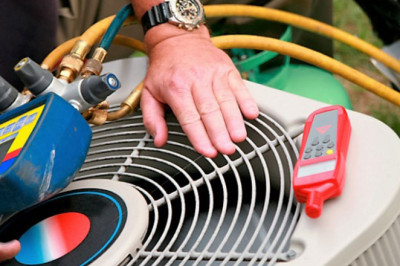views

6 Negative Effects of Poor Sleep at Night
Sleep deprivation is common for many people. A lack of sleep has both short and long-term effects. In the short term, a lack of sleep can impair perception, mood, learning, and memory, as well as increase the risk of major accidents and injuries. In this article, we have gathered six negative effects of poor sleep at night.
1. Weight gain
Sudden weight gain is one of the side consequences of sleep deprivation. Sleep deprivation is linked to increased levels of cortisol, a stress hormone. The worry, tension, and frustration that results frequently lead to emotional eating and bad dietary habits. Sleep deprivation has a detrimental influence on the body's metabolism and eating habits over time.
Tiredness is linked to unhealthy desires and overeating, as well as a reduction in stamina and physical activity. People who are sleep-deprived are more inclined to eat high-carbohydrate, high-sugar meals. Weight gain is caused by a decrease in activity paired with an increase in the amount eaten as well as an increase in the caloric content of the food consumed.
2. Depression
Sleep deprivation exacerbates the symptoms of depression. People suffering from anxiety or depression were asked to quantify their sleeping patterns in a 2005 poll. It was discovered that the majority of these individuals slept for fewer than six hours each night on average. Insomnia and depression are typically related, with one often progressing to the other. Depression symptoms might make it difficult for a patient to fall asleep.
3. Headaches
One of the most crucial components of your health is sleep, and not getting enough of it on a regular basis can cause chronic headaches. An attack might be triggered by insufficient sleep or a lack of a stable sleep regimen. Furthermore, migraine headaches can be caused by sleep apnea (when your airway becomes obstructed frequently while you're sleeping, limiting or entirely blocking your airflow) and teeth grinding during sleep.
4. Skin aging
After a few nights of poor sleep, most people have a pale complexion and swollen eyes. Chronic sleep deprivation has been linked to dull skin, fine wrinkles, and dark bags under the eyes. When you don't get enough sleep, your body produces extra cortisol, which is a stress hormone. Cortisol, in high doses, can degrade skin collagen, a protein that makes skin smooth and elastic.
In addition, lack of sleep leads the body to produce insufficient amounts of human growth hormone. Human growth hormone helps us develop while we're young. It aids in the growth of muscle mass, the thickening of the skin, and the strengthening of bones as we age. It's a typical aspect of tissue healing, and it's used to patch up the day's wear and tear.
5. Low sex-drive
Sleep-deprived men and women have reduced libidos and less desire for sex. It's possible that a lack of energy, tiredness, and strain is to blame. There might be another element in the sexual downturn for men who have sleep apnea, a breathing disorder that keeps them up at night. This is because low testosterone levels are common among men with sleep apnea. Almost 40% of men with severe sleep apnea had unusually low testosterone levels during the night.
6. Cardiovascular conditions
Sleeping for less than 5 to 6 hours each night has been connected to an increased risk of hypertension. Sleep deprivation has been linked to elevated blood pressure, a faster heart rate, and inflammation. All of this places undue stress on your heart.
Sleep deprivation also increases the risk of heart attacks and stroke. Lack of sleep may alter the areas of the brain that manage the circulatory system or create inflammation, which increases the development of a blood clot more likely.












